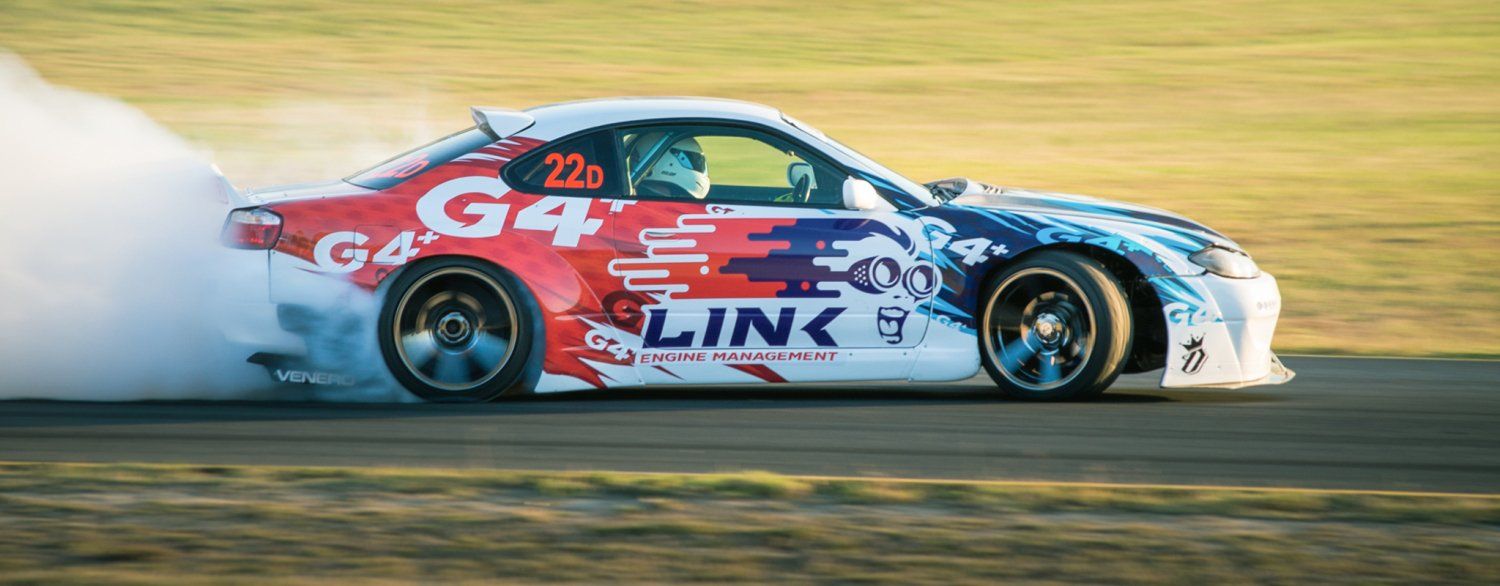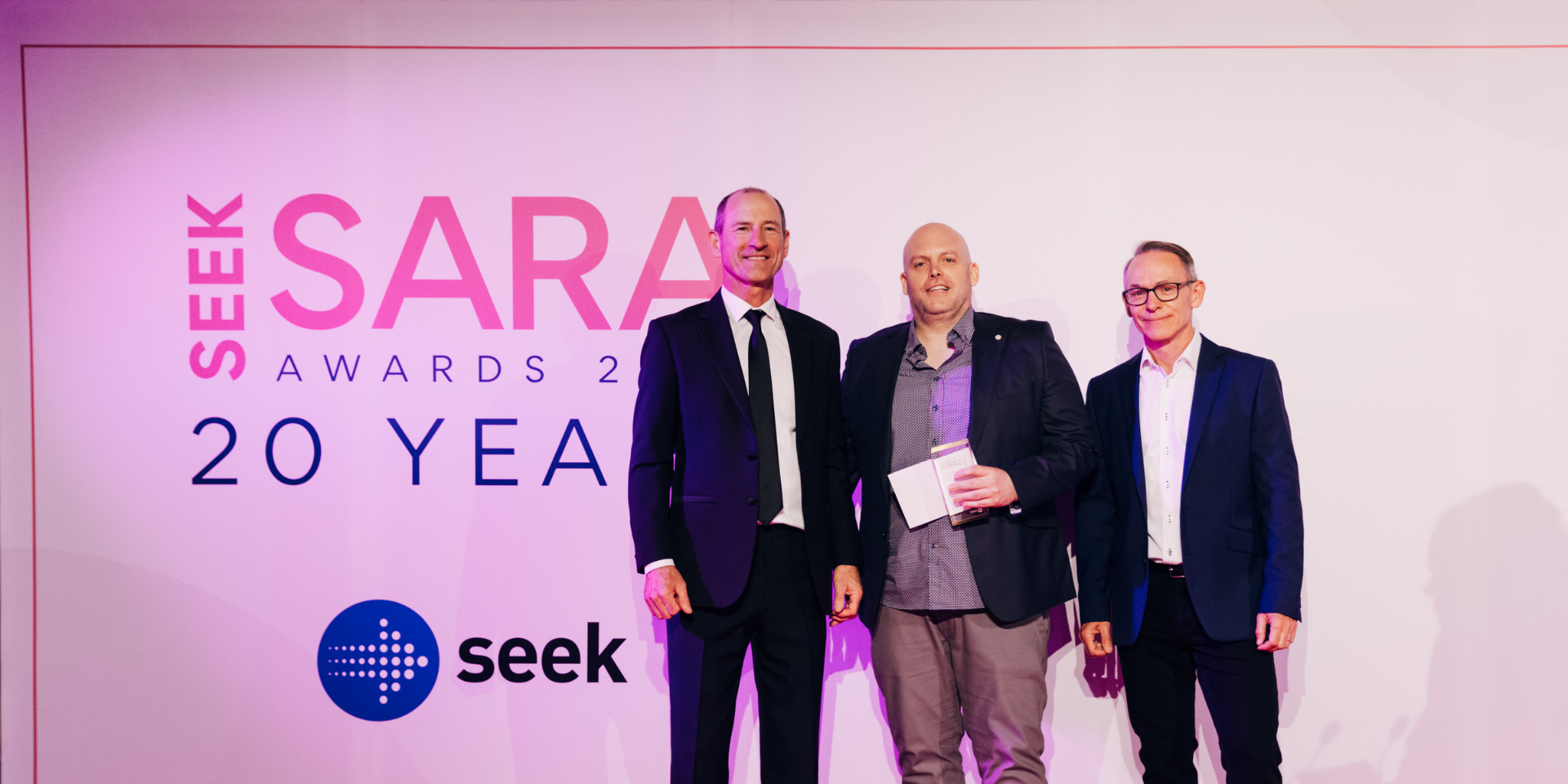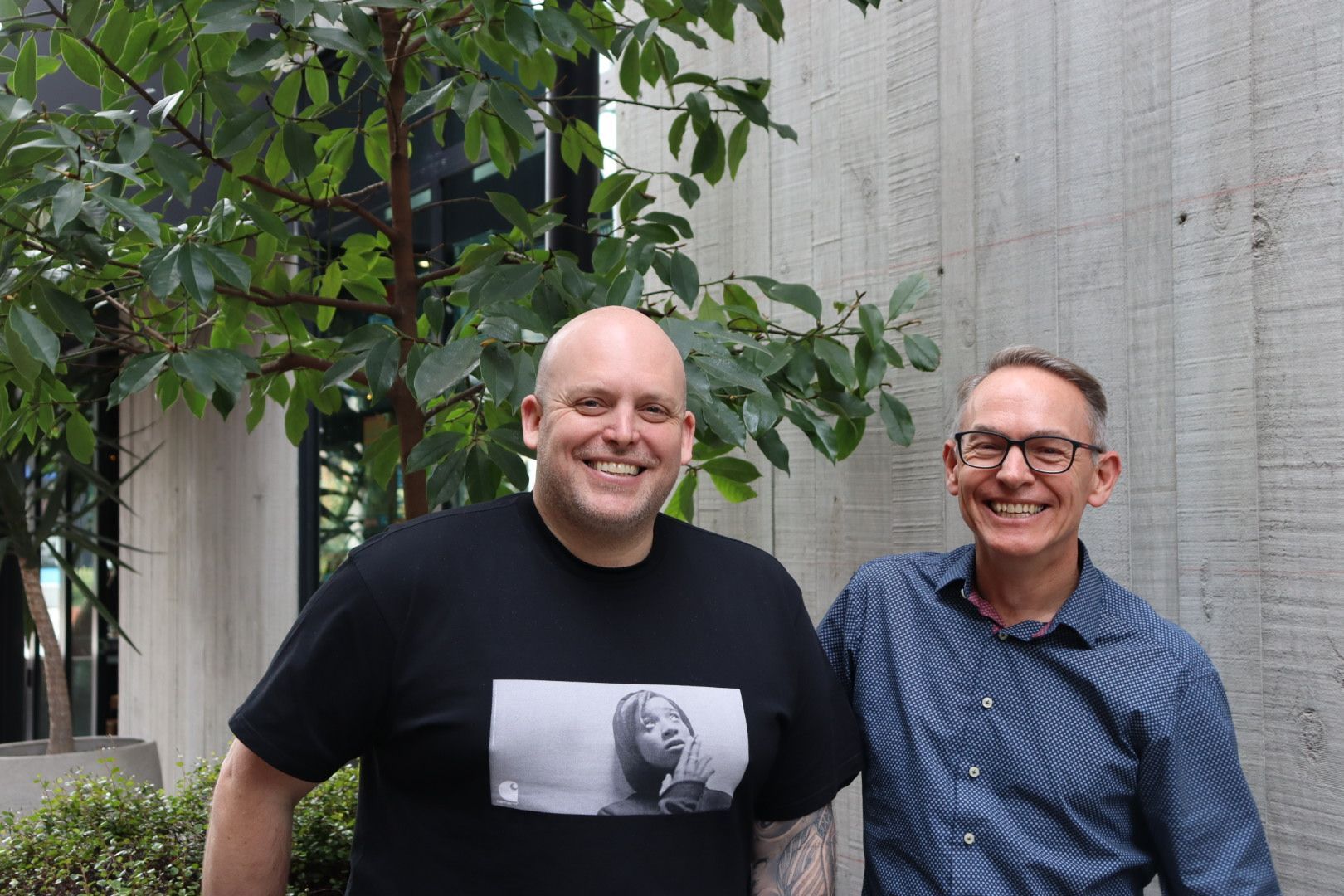CHRISTCHURCH TECH STORIES: LINK ENGINE MANAGEMENT
Christchurch’s tech sector is proud to be world class, connected and creative. The Talent Hive has been working on a blog series with a number of Tech employers in the region and we’re delighted to share those with you over the next few weeks.
Link Engine Management is a designer and developer of engine management devices and software. Link ECUs (Engine Control Units) are 100% New Zealand designed and developed, with head office based here in Christchurch.. From their humble beginnings in Rally, today the companies products are used in all kinds of car racing and exported to more than 65 countries around the world. We sat down with CEO Andy Millard to discuss the growth of this heroic homegrown company that’s Kiwi through and through. And all the better for it.
Tell us about the genesis of Link Engine Management. It seems to have grown from a real love of motorsports rather than a cynical eye for a business opportunity – is that attitude the secret to your success?
I’ve never heard it described that way, but that is actually the truth. Our founder Philip Royds and his business partner at the time set up a small business – not far from here actually, in Middleton – in an old rundown building. A major change in motorsports, or in cars generally, happened around that time: we went from carburettors to fuel injection.
Fuel injection needed a sophisticated (for the time) electronic engine management system to run the engine, which was a significant change. It also gave young engineers the opportunity to ‘hack’ the systems to maximize the performance of the car, especially for racing, which is what an ECU (Engine Control Unit) does. So, the business grew from there.
These guys were, like all young men, tinkering with their cars. They were out at Ruapuna racing with mates and that’s where the business started – because they had something unique. They had the technology and the skill to be able to create these engine control units, which in those days were quite basic electronics, but enough to be able to tune the car and get some extra power out of it.
They started Link and began selling those ECUs to friends and other racers at Ruapuna, and word got around that this was quite new and clever. That was the G1, our first generation of Link products to be sold.
Then surprisingly – or conveniently – a guy called Possum Bourne heard about the boys, got in touch and said ‘Hey, I hear you’re doing some electronic magic in these cars, would you like to build an ECU for my stable of Subaru WRX rally cars?’ And of course, Philip and his partner jumped at the opportunity, and the PossumLink was born. The rest is history. And Possum was, as everybody knows, a delightful guy. He took that technology around the world. He always took Link with him. And Link grew from there.
So, our heritage is rally, but our passion now is other sports, like drifting and track racing. Now, we’ve got motorsport, power sport, military drones, aircraft, boats, ocean racers, jet skis, snowmobiles. Anything that runs an engine will run a control unit like ours.
You’ve built a reputation for supporting new talent. Has your show of faith been rewarded by brand loyalty?
In terms of our sponsorships you mean?
Yeah.
Yes. I mean, obviously Possum Bourne Motorsport built a business around his success. Today they are a strong customer. Even though he’s gone and it’s now held in other hands.
We sponsor over 100 super-pro racers around the world. These are people at the absolute pinnacle of their sport. Is there loyalty? Yes, there is, and we see a lot of brand following. If you look at our strength in Drift, for example, you’ve got famous names like The Shanahan Brothers out of Ireland, the German Red Bull Drift Brothers, several champion drivers in the Middle East, and the recent winner of Formula Drift in the USA, James Deane. These drivers and teams generate a strong fan base. I always call it the fan boys and girls who follow – and our brand is rewarded. As a result, we have 55,000 fans on Facebook alone.
We’re also very strong on supporting events, because it’s important that there’s are viable competitions for drifters or any motorsport people to go to compete. There’s no point in trying to sell product when there’s no events to race at. Motorsport get young people off the street, it gives them an interest, and if they can go and compete at the weekend it puts that onus back on them to compete at the weekend rather than take it to the streets where it’s dangerous. So we sponsor many mainstream and grassroots motorsport events around the world.
We try to be corporately responsible in that regard!
After 25 years of growing into a global business exporting around the world, your R&D remains entirely NZ-based. Was this a conscious decision? Or is it simply a case of not fixing something that isn’t broken?
No, totally conscious. It is a core value of our business to continue to be proud New Zealanders. And we’re fiercely proud New Zealanders. We just absolutely wear it out there on our sleeves – literally, you’ll see us in our pit shirts at international events, with the Kiwi flag on our arms. We’re very proud.
Even though we know we can get our product manufactured in China at about half the price, how does that help us? How does that help our community if we get it manufactured in China?
We operate absolutely locally. In fact, 99.8% of all our products are designed and manufactured in New Zealand. Even our enclosures for our ECUs, they get made by an aluminium foundry in Auckland, all our PCBs are manufactured locally, and we’ve got a couple of really good partners in that. We do all our assembly locally – even our packaging comes from a local supplier.
So, we’ve made sure of that every step of the way we maintain our Kiwi made theme. We might check prices, and we’ve been courted, particularly in the last 12 months, by overseas investment and manufacturers saying, ‘If you buy from us we’ll give you these incentives’. But we are not interested because we know who we are.
If the aim ultimately was to make a lot of money for our shareholders – which they might argue that it is – then there comes an imperative to go overseas and take our manufacturing to cheaper suppliers. But for us it’s also the quality element as well. It’s important. And with NZ based suppliers we can ensure the quality is maintained.
We have other partners too. We’ve got great relationships with NZTE, ChristchurchNZ, Callaghan Innovations, and they’re good people. University of Canterbury – fantastic. We always have an engineering intern here. If you go downstairs and see the engineering team we’ve got two interns at the moment, and they love coming to work at Link. We give to the community in our small way. We’re supporting, we’re giving back, we’re always part of that.
If the imperative was to make money, then we would manufacture overseas. If the imperative is to build a good quality business with a good heart, then actually we’ll continue to do what we do.
We’re now at a point where we’ve increased our turnover 60% year on year, organic growth, so you’ve also got to look at the fact that we now enjoying economies of scale. Therefore, for all our manufacturers – we’re a very big part of their business. So, you’ve got to think about that. What happens if we do send our stuff overseas? What’s going to happen to those businesses? So, there’s a flow-on effect you need to think about if you decide to take your R&D and/or manufacturing overseas. We ask ourselves, “How are our decisions going to impact positively or negatively on our local suppliers?”
Is there something special about the Kiwi attitude that makes New Zealand so well placed to innovate in motorsports? Or is it just you guys?!
Yeah, I call it ‘isolation-itis’. It’s unique, actually, to Kiwis. Where we think we’re behind the rest of the world. We’ll go to a trade fair in Indianapolis, for example, and we’ll have a look at what the world has on offer in our space. And we’ll go, wow, we could do that, and we’ll race away and we’ll have an idea in our head and we’ll sit down with the engineers and get building. But we think the world’s far ahead of us, because we’re in sunny little New Zealand and we’re way behind. And we’ll produce a product and we’ll do our very best at it, and the next year we’ll take it to PRI or SEMA – international motorsport trade shows – and we’ll go ‘Here everybody, here’s our product. I hope it’s as good as yours’, and everybody looks at our product going ‘This is amazing. It’s so much better than our product.’
The ‘isolation-itis’ is: we think we’re behind the world, behind trends and technological advances, but we’re not. We are spectacularly good and fast at taking products from concept to market. We’re more adaptive, we’re more flexible, we’re more agile to develop new technology because we’re not influenced every day by looking at what the competition are doing. We just crack on and do what we do.
What feedback do you get from your global dealer network? Any insights on what they get from you that they can’t get anywhere
else?
Generally, Kiwis are very modest and unassuming. In fact, we sometimes border on self-deprecation. People say ‘Wow, you’ve got a really good product’ and you go “No, not really, because such-and-such a company is doing slightly better.” I think it’s taken us a while to actually accept the fact that we’re a global leader. We’re one of four global leaders in motorsport technology, in the space we are in. We export to 65 countries across the globe with over 1450 customers … we’re doing alright.
It’s taken us a while to accept that, it’s taken us a while to accept the praise. We go out to our customers annually, do a survey of all our customers, and we’re just overwhelmed by the positive response, especially when compared to our global competitors.
Quality is very important. We pride ourselves on the quality of products we produce. When you ship our products to St. Vincent in the Bahamas or the Seychelles or into Germany, our customers don’t want to have to send product back to New Zealand for a warranty claims. So, we make sure that it’s full tested and 100% reliable before it leaves our factory. Our return rate is less than 0.25% of our current generation of product. So, by the time it leaves here, we can guarantee it’s going to work perfectly.
For that, we get a lot of praise and even, reluctantly, our competition go ‘Yeah, actually, you guys make a good quality product and it shows’.
Where do you see Motorsports heading over the next ten years? What role do you hope to play in its growth?
If I put the futurist’s hat on, and having spent some time at the Canterbury Tech Summit recently, you’d say that the futurists are talking about autonomous cars that will drive you to work while you read the newspaper, and they’ll be electric. For us, this is death by a thousand cuts. But the truth of it is, if you’re using an analogy of the horse and car, when the car came along, the horse became the focus of our leisure activities and we started eventing, hunting, showjumping, trail riding, etc. So we took what was a utilitarian institution and we turned it into the centre of our leisure activities.
The more cars become autonomous and self-drive, the more motorsport is becoming important on the weekend. This is what we are seeing, we are seeing the growth of motorsport, particularly the growth in classic car collectors and people wanting to do up old cars for racing. Likewise, we have seen a growth in all aspect of motorsport in the last five years including some new disciplines such as RallyCross.
Motorsport in the US and classic car racing in the UK has increased 80% in the last 12 months. All these people buying old Renaults, Minis and Alfas and doing them up and going racing at the weekend – this is a huge growth market. The other growth market is performance cars for Track Days. This is where you take your Porsche, Nissan R35 Skyline, HSV to the track once a month and drive fast. It is becoming very popular.
Therefore, I’d say as the more technology reduces human input, I think people will go and test themselves through motorsport. Motorsport will continue to grow. That also includes boat racing, jetskis, snow mobiles, etc.
I think there will be an element of motorsport that will be associated with new technologies, like Formula E, with the electric cars in a Formula One format. You’ll see hybrid cars racing too, but I think you’ll see an awful lot of old-school internal combustion engines playing every weekend.
At the end of the day, what people don’t realise is the predicted growth of electric cars and alternative technology cars relies on a passive petroleum industry, and you know that OPEC is not going to be passive. When they see their money going out the door you’ll see them change their footing and fast. Likewise, the government does not tax electric vehicles and the electricity they use as they do with petrol and diesel vehicles. It will not take long before governments start taxing electric cars and they will quickly lose their commercial advantage. After all, the roads still need to be paid for.
I don’t think the internal combustion engine is dead. I certainly don’t think gasoline-running cars are dead. I think you’ll see much more efficient cars running using much more efficient fuels dominating the global fleet.
… the future is bright!
This interview is condensed and edited for clarity.
At The Talent Hive we specialise in connecting IT & Engineering professionals with the right career opportunities. We encourage collaboration, socialising your success and sharing industry insight and expertise. Start the journey, connect with The Talent Hive today.
Christchurch:
2/38 Southwark Street
Christchurch
PO Box 162
8140
Powered with 💛 by Shazamme






